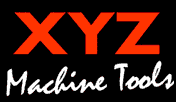Machine Shop staff are seeing the benefits the ProtoTRAK® CNC control can bring to the workshop.
Since its establishment in 1946, Fletcher Moorland, the Stoke on Trent based 24 hour a day repair and refurbishment company, has continued to thrive under the leadership of three generations; Sam Fletcher who founded the company followed by Malcolm Fletcher and now Matt Fletcher.
Starting as a company that rewound motors for local businesses, Fletcher Moorland expanded its services under Malcom’s guidance to include pump, gearbox and fan repairs. As technology advanced, the company became one of the first in the UK to offer independent industrial electronic repair services. Under Matt’s leadership, Fletcher Moorland has continued to invest and expand its services for its growing customer base.

The motor repair shop at Fletcher Moorland where the rotors are removed before sending to the machine shop for refurbishment.
This is especially evident in their machine shop, where they recently purchased an XYZ RLX 780 flat bed CNC lathe fitted with the ProtoTRAK® RLX control. When asked about the acquisition, Matt Fletcher explained “Traditionally, we have worked on motors that are sub 1 MW (megawatt) but, with the advances in wind turbines we are now seeing repairs required on equipment that are 2 – 2.5 MW. These machines, which weigh around 10 tons, have larger rotors and end shields and we didn’t have equipment to process these larger parts”.
Faced with this challenge, Matt tasked the Electrical Mechanical Workshop Manager, Matt Sparkes, with finding a solution that would allow them to continue to provide a first-class service to their customers. “The main reason for seeking a larger lathe was to meet our customer demands, without having to subcontract work out” +comments Matt Sparkes Electrical-Mechanical workshop Manager.
The process of acquiring a larger lathe involved researching the market for suitable equipment. This culminated in two visits to XYZ’s Midlands Technical Centre located in Nuneaton, with both the shopfloor machinists and, Matt Fletcher the Managing Director before committing to the largest capital investment in the machine shop to date.

Matt Sparkes continues. “The demonstrations from John Aspinall, XYZ’s Area Sales Manager, gave us the confidence that the RLX 780 was the right fit for us in terms of machine size and capacity. After seeing the ProtoTRAK® RLX control, being used both manually and in CNC modes we knew it was the best solution for our workshop”.
With shafts and rotors increasing in size, Fletcher Moorland is already benefiting from the purchase of the XYZ RLX 780 with its 3-metre distance between centres. By removing the gap of the bed, they can now produce end shields up to 1090mm in diameter. Additionally, the air ride assist feature makes moving the substantial tailstock easier, while the ability to hitch it to the saddle to move it backwards and forwards to the workpiece, simplifies the machinists’ workload.
Matt Sparkes also notes “The 160mm spindle bore has been advantageous, especially when we did a batch of conveyor rollers. The additional fixed steady we purchased has already proved its worth”.

A large rotor loaded into the XYZ RLX 780 at Fletcher Moorland ready for machining.
In a closing remark Matt Sparkes says “We really feel that the ProtoTRAK control is the way forward for us. Its ease of use and flexibility aligns with our processes, and going forward, we see it enabling us to produce one offs quickly and efficiently using the conversational format that the control provides”.
Alongside investment in the electronics repair and refurbishment sector, which supports all forms of industrial automation, the company has also established a dedicated workshop for servo motor repairs and continues to develop its reliability services division, which provides feedback to the user on plant conditions. Matt Fletcher emphasises that the machine shop remains a high priority for the management team. It will not only help move the company advance in the repair of rotating equipment but also provide new opportunities such as machining parts for the food and drink industry, where a quick turnaround on wear parts is essential.

